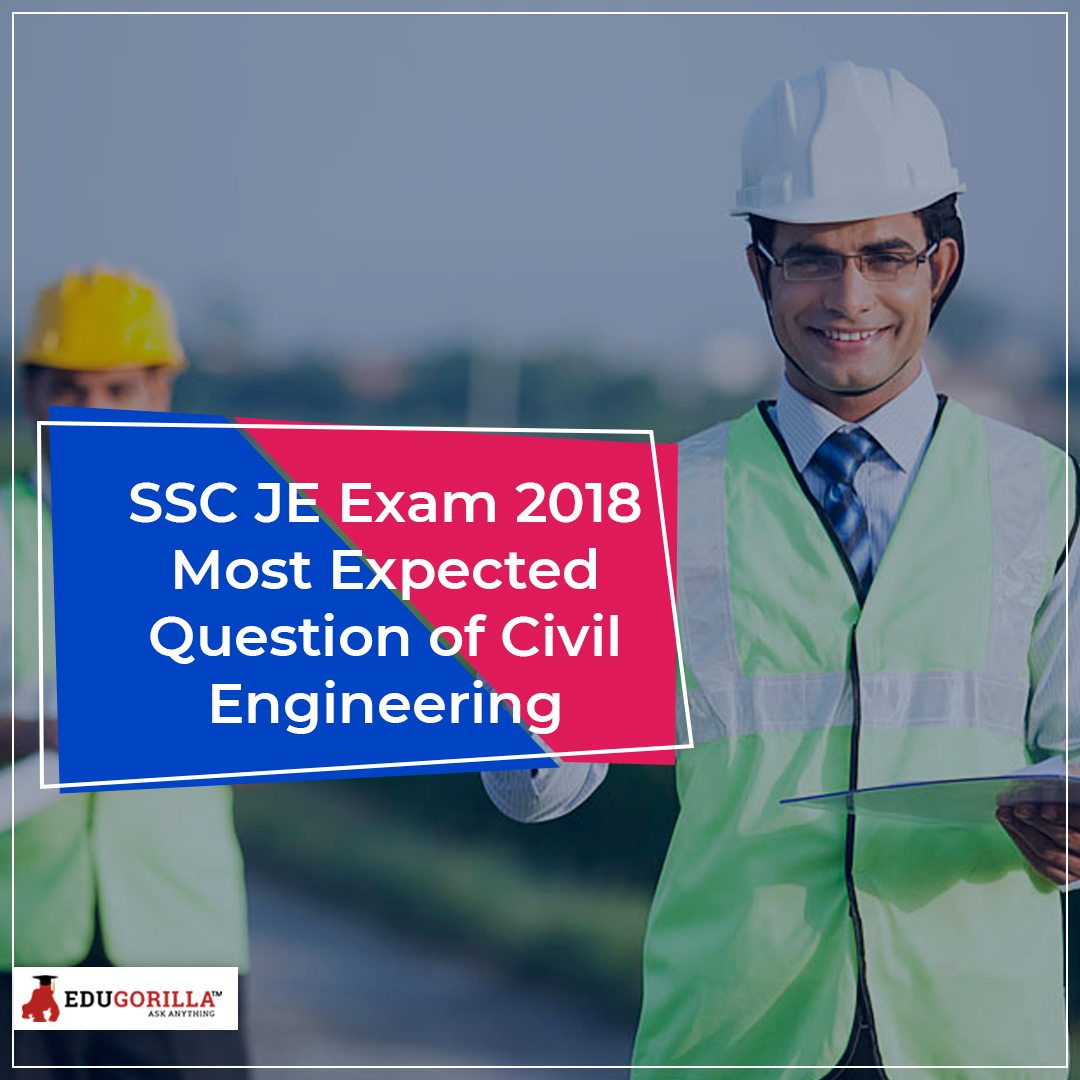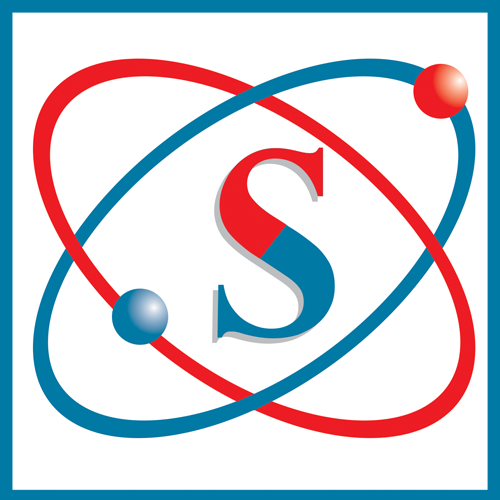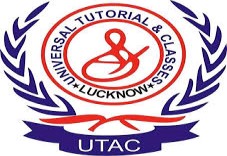India being one of the largest producers of Engineers in the world clearly projects that the nation’s tomorrow would technically be in safe hands. If we believe that the above hypothesis would be true, there comes SSC JE which filters out the best core engineers from the rest. That’s why it’s among the prestigious jobs that India has to offer. No wonder you would be treated as an intellectual person throughout your life in the society once you get hired by the Staff Selection Commission, a Government of India Body. The gateway to your dreams is the SSC JE CE exam which is held annually. Truly, JE is a job that is associated with technical responsibility.
As a JE CE you would be asked to take responsibilities of the ongoing Civil Projects like Highways, Tunnels, Dams, Water Channels, and so on. As said earlier, the numbers of applicants are pan-India making SSC JE CE a very competitive exam. We believe that a passion in Engineering and the ability to analyze complexity in problem solving is just right to crack SSC JE CE.
Exam Schedule
| Events | Dates |
| Release of notification For SSC JE 2018 | October 20, 2017 |
| Start date of online registration | October 21, 2017 |
| Last date to fill SSC JE 2018 application form | November 17, 2017 |
| Last date to pay the application fee (online) | November 17, 2017 |
| Last date to pay the application fee (offline) | November 17, 2017 |
| Issue of Admit Card for Paper 1 | January 9, 2018 |
| Conduct of SSC JE Paper 1 2018 | January 22 to January 29, 2018 |
| Release of Answer Key of SSC JE Paper 1 2018 | February 13, 2018 |
| Declaration of Paper 1 Exam Result | March 26, 2018 |
| Issue of Admit Card for Paper 2 | First week of April, 2018 |
| SSC JE 2018 Paper 2 Exam Date | April 29, 2018 |
| Final Result of SSC HE 2018 | To be notified later |
SSC JE Exam Pattern 2017
| Papers | Date of Exam | Subject | Max Marks | Duration & Timings |
| Paper-I Objective Type Computer Based | 5th to 8th January 2018 | (i) General Intelligence & Reasoning | 50 | 2 Hrs |
| (ii) General Awareness | 50 | |||
| (iii) Part – A Civil & Structural OR Part-B Electrical OR Part-C Mechanical | 100 | |||
| Paper-II Conventional Type Written Exam | To be Notified Later | Part –A General Engineering (Civil & Structural) OR Part-B General Engineering (Electrical) OR Part-C General Engineering (Mechanical) | 300 | 2 Hrs |
Exam Syllabus
General Intelligence & Reasoning: The syllabus for General Intelligence includes questions of both verbal and non-verbal types. The test may include questions on analogies, similarities, differences, space visualization, problem solving, analysis, judgement, decision making, visual memory, discrimination, observation, relationship concepts, arithmetical reasoning, verbal and figure classification, arithmetical number series etc.
General Awareness: Questions will be aimed at testing the candidate’s general awareness of the environment around him and its application to society. Questions will also be designed to test the knowledge of current events and of such matters of everyday observations and experience in their scientific aspect as may be expected of any educated person.
General Engineering (Civil and Structural), (Electrical & Mechanical)
- Part-A (Civil Engineering)– Building Materials, Estimating, Costing and Valuation, Surveying, Soil Mechanics, Hydraulics, Irrigation Engineering, Transportation Engineering, Environmental Engineering. Structural Engineering: Theory of Structures, Concrete Technology, RCC Design, Steel Design.
- Part-B (Electrical Engineering)– Basic concepts, Circuit law, Magnetic Circuit, AC Fundamentals, Measurement and Measuring instruments, Electrical Machines, Fractional Kilowatt Motors and single phase induction Motors, Synchronous Machines, Generation, Transmission and Distribution, Estimation and Costing, Utilization and Electrical Energy, Basic Electronics.
- Part-C (Mechanical Engineering)– Theory of Machines and Machine Design, Engineering Mechanics and Strength of Materials
Important Topics
- RCC
- Steel
- Surveying
- Concrete Technology
- Construction Technology
Sub-important Topics
- Fluid Mechanics
- Geo Technology
- Strength of Materials
- Environmental Engineering
- Transportation
- Water Resources and Irrigation
Most Expected Questions
- Which of the following is used to determine the small color densities?
- Turbiditimeter
- Nephelometer
- Tintometer
- Hygrometer
- Convective precipitation is caused due to:-
- Upward movement of air warmer than its surroundings
- Air striking mountains
- Which of these is/are correct?
- Only i
- Only ii
- Both of the above
- Neither I nor ii
- When the flow is such that one third of the static head is consumed in pipe friction, the power delivered by the given pipeline will be:
- Zero
- Unity
- Same as always
- Maximum
- Which of the following foundation is used to transfer the heavy structural loads from coloumns to soils having low bearing capacity?
- Inverted arc footing
- Cantilever footing
- Grillage footage
- Combined footing
- In Marcus’s method of designing two way slabs, thickness is generally taken to be __________________ of shorter span.
- 1/10
- 1/20
- 1/30
- 1/40
- Pneumatic tyred rollers are used for compaction of _____________ soil of low plasticity.
- Sandy
- Loamy
- Silty
- Plastic
You Might Want To Read:
Vijeta Defence Academy Kanpur, Ugc Net Archaeology Question Paper 3 2008, Fellowship Examination Human Resources Management Mock Test Paper 54, Net Tourism Administration And Management Mock Test Paper 264, Heredity And Evolution, Jawaharlal Nehru University Gate Metallurgical Engineering Question Paper 1 2009, Lok Sabha Examination Mock Test Paper 48, Ugc Net Persian Mock Test Paper 29, Upsc Cs Mains Public Administration Sample Paper Set 02, Tamil Nadu Board Sectional Test
Leave your vote
This post was created with our nice and easy submission form. Create your post!










Like what you read? Give author a thumbs up?
Bookmark this article to read later, drop a remark in comment section and share with your friends..